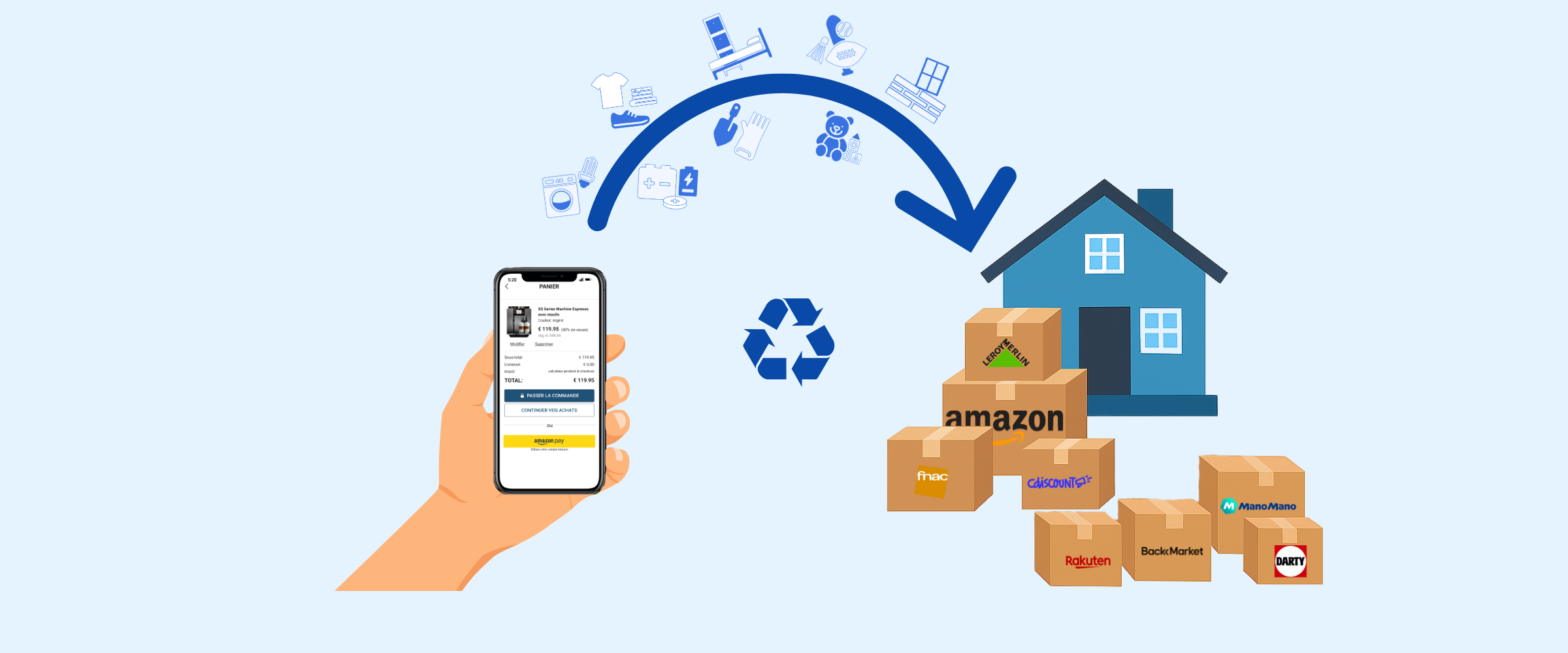Marketplaces: How to automate EPR compliance for thousands of third-party sellers?

The AGEC law: a regulatory obligation that is now essential for Marketplaces
The AGEC law requires all online marketplace platforms (Amazon, ManoMano, Cdiscount, etc.) to verify that third-party sellers comply with their EPR obligations. This includes:
- Registration with an approved Producer Representative Organisation;
- Obtaining a UIN (unique identification number issued by ADEME);
- Declaration of volumes placed on the market for each relevant Scheme.
- The transmission of eco-participation fees for their WEEE and Furniture products
This principle of “transfer of environmental responsibility” transforms marketplaces into co-pilots of EPR compliance, in the same way as producers or importers.
Risks for marketplaces in the event of non-compliance
Failure to rigorously monitor EPR compliance on the sellers' side exposes platforms to several risks:
- Sanctions from ADEME: fines in the event of inspection or breaches;
- Damage to the platform's image: accusations of greenwashing or laxity.
In addition, marketplaces must produce an annual report to the administration proving that they have checked the validity of their sellers' UINs.
An increasing requirement... facing a very heterogeneous seller base
The challenge is that sellers are not all at the same level:
- Some are unaware that they are subject to EPR;
- Others use UINs that are invalid or do not correspond to the correct Scheme;
- Many do not know how to calculate their eco-contributions.
As a result, marketplaces bear an increasing verification burden, which is often manual, poorly structured and time-consuming.
CompliancR: the all-in-one solution for EPR Marketplace
At CompliancR, we have designed a solution adapted to the specific challenges of marketplaces.
For compliance teams and partners:
- API for automatic UIN verification during seller onboarding;
- Dashboard to track the validity of declarations and UINs by seller;
- Seamless integration with account management or KYC systems.
For sellers:
- Self-service platform to obtain their UIN, declare their products and generate their supporting documents;
- Simplified assistance by Scheme (packaging, WEEE, TLC, furniture, etc.);
- Automated calculation of eco-contributions from their catalog.
Result: compliant sellers, a respected regulatory framework, and a strengthened relationship of trust.
EPR compliance becomes a strategic lever for marketplaces
In 2025, compliance is no longer just a box to tick. It's a selection criterion for sellers and a guarantee of seriousness towards consumers.
Marketplaces that structure their EPR policy now will gain:
- In attractiveness for responsible sellers;
- In visibility in an increasingly regulated market;
- In efficiency in their reporting obligations.
CompliancR helps you transform an obligation into an operational advantage.
Discover how our solution integrates with your platform to manage EPR Marketplace seamlessly.